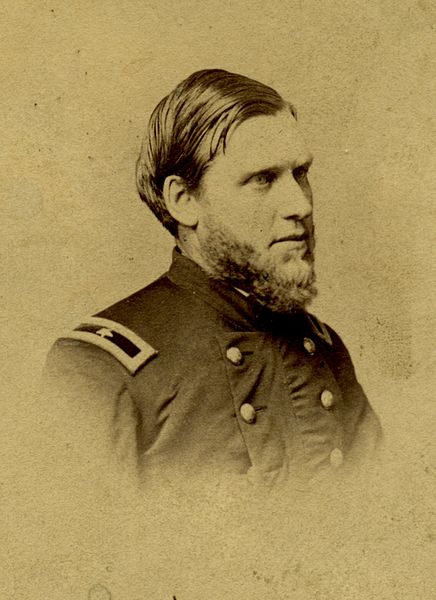In 1874, William D. Cameron, a Civil War veteran, assumed command of the Big Horn Gun for the expedition. He determined that what was needed was shrapnel filled projectiles, although in the Montana Territory there were probably none to be found. Using his imagination, he discovered several cases of canned oysters in the Tuller, Rich and Willson General Store, owned by Lester S. Willson. However, Lester S. Willson was no ordinary shopkeeper, not by a long shot.
Born in Canton, New York, on June 16, 1839, Willson enlisted in the Union Army in 1861, rising through the ranks in the Sixtieth New York Volunteers to become a colonel by 1865. During the war, he fought at Antietam, was severely wounded at Chancellorsville, and fought at Lookout Mountain, Atlanta and Savannah. Colonel Wilson received the surrender Savannah from Mayor Arnold and was the first officer to enter that city at the head of his own regiment. Two years after the war, he received a brevet promotion to Brigadier General “for gallant and meritorious services under General Sherman, resulting in the fall of Atlanta, Georgia. After the war, he traveled to Montana, where he became a prominent businessman and politician. When Cameron told him what he needed, Willson knew just what the doctor ordered.
Cameron and Willson donated the oysters to the general public and filled the empty cans with nails, cut-up horse shoes and scrap iron. They cut the tops of the cans – which were about eight inches tall – to form metal tabs around the edge and after the original lids were put back into place, crimped the tabs in place. The pair also found a ream of blue flannel which the cut and sewed into powder charge bags. Ten inches long and filled with black powder, the charge bags formed a snug fit, when rammed down the muzzle of the cannon, and ensured that the shrapnel canisters would fly a long way.
